2022 Arctic to Manhattan Winter Semester Blog #5
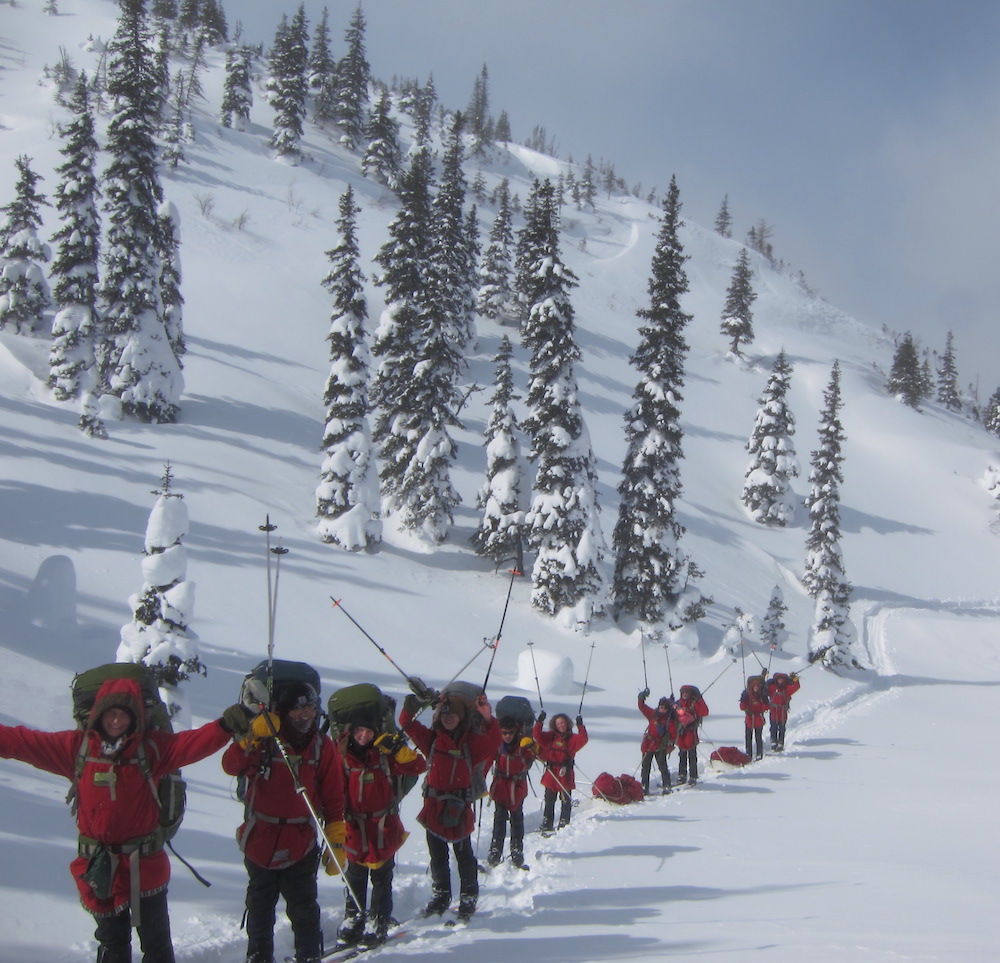
Whenever I head off to go
Poo-poo in the infinite snow,
I come near a tree
And sink past my knee
Then screaming I flail to and fro.
I make up my mind to climb out
And instead of thrashing about,
I grab hold of the tree
And pull myself free,
But then snow falls down onto my snout.
By this time my face is quite cold,
And the force in my pants feels quite bold,
So, as I squat to poo
In the hole from my shoe,
I long for the toilets of the old.
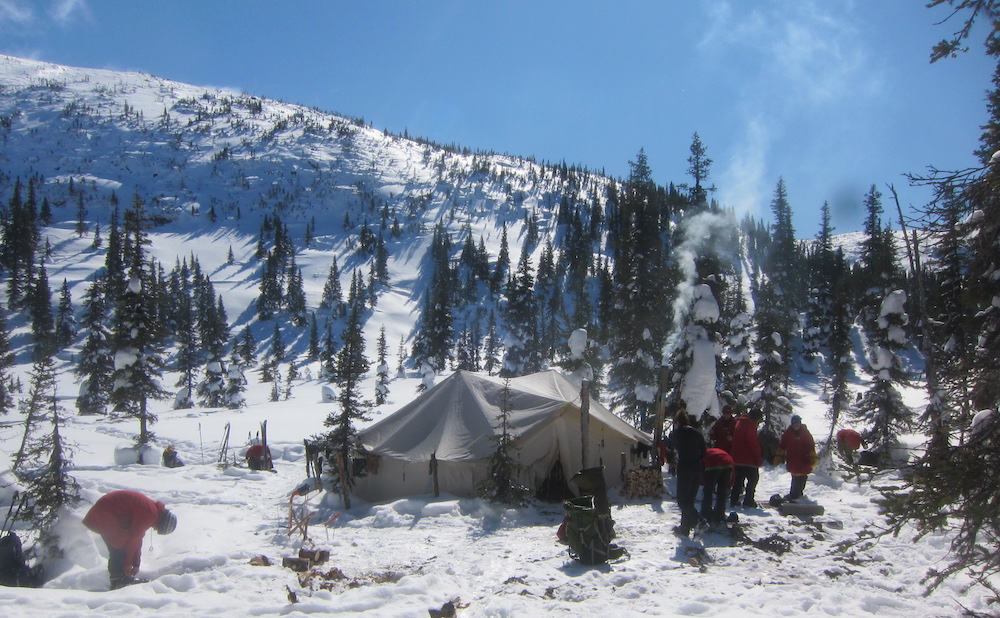
Winter Camp in the bush
Uapishka is a vast mountainous wilderness of boreal forest in Northeastern Quebec. It is a glorious tumble of glacier-sculpted valleys, streams and ponds, deep spruce woodlands, and high, sheer cliffs of black rock dripping with ice. Uapishka is beautiful in its brutality. On the high, barren mountain peaks, there were times when the wind tore the breath from our lungs and froze our eyes shut as we struggled to stay upright.
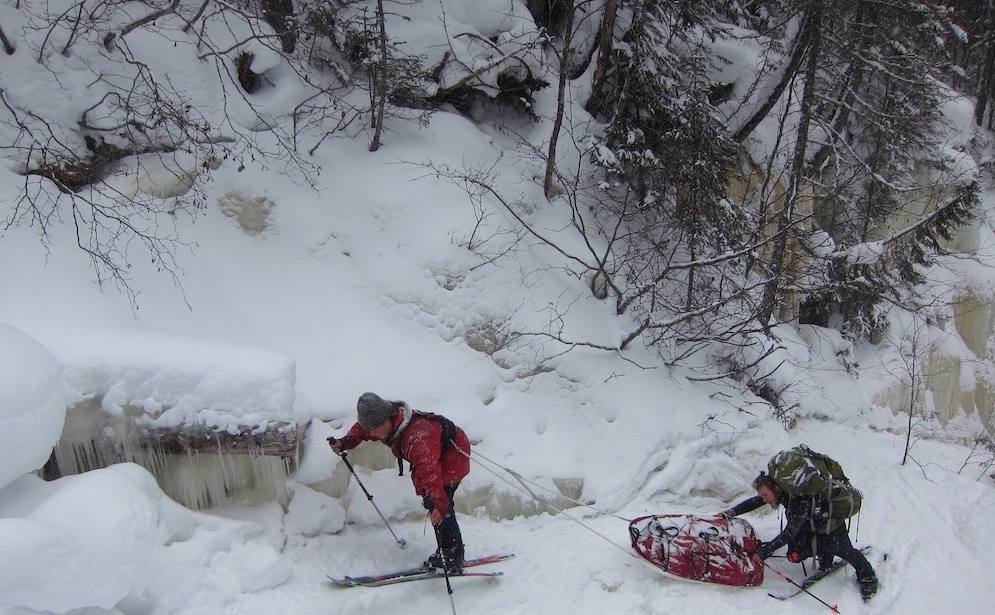
Fern and Alex maneuvering the sled en route
But Uapishka was gentle with us, too. The sun shone and glittered on the endless plains of snow, and cool breezes washed over our scorched faces. We saw martens scampering through the snow, moose floundering across frozen lakes, and bold whisky jacks who would eat out of our hands. The mountains reminded us of sleeping giants – rolling white mounds, like upturned, slumbering bellies. Uapishka is wild, ferocious, breathtaking, and real, and we are homesick for the mountains already.
– Fern

The transformative power of the Uapishka expedition
Our Uapishka Leg was divided into three smaller legs: Entering the Mountains, Mont Lucie Leg, and Heading North. Entering the Mountains was marked by heavy backpacks, full sleds, and lots of climbing. We had the coldest temperatures of our trip, with nights as low as negative 14 degrees Fahrenheit and daytime highs sometimes no warmer that zero degrees Fahrenheit. Our path was broken for us until we reached Massif Provencher by two snowshoers who built snow caves each night (we were unable to find their snow caves). This leg lasted six days, three of which were normal travel days and three of which were spent resting or doing navigation exercises.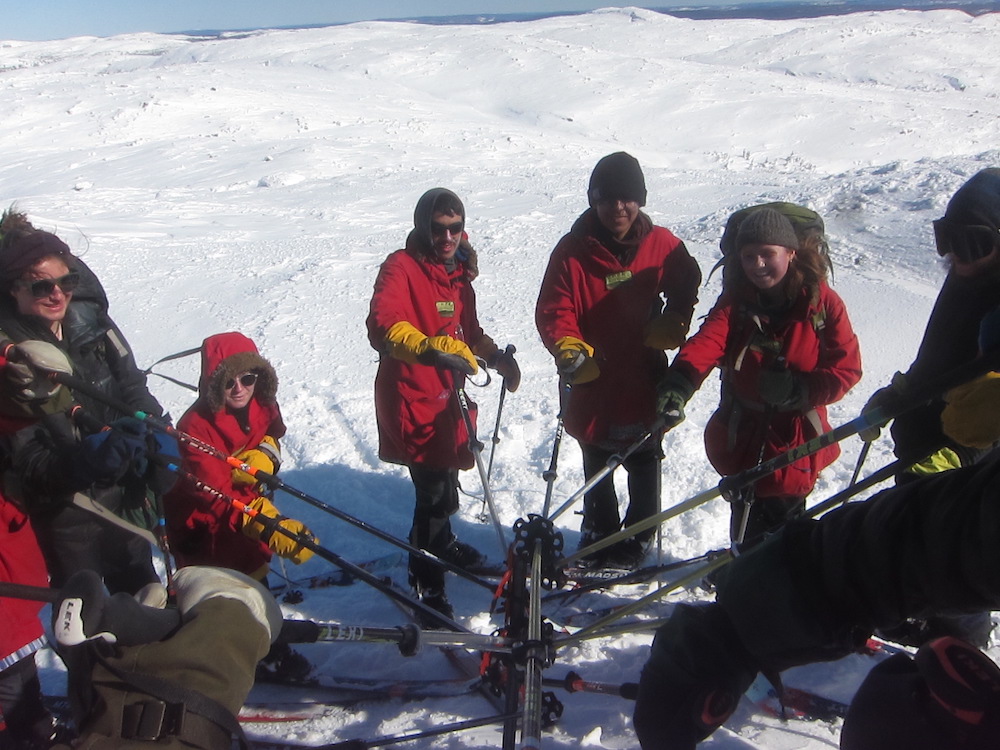
The Mont Lucie Leg brought gradually lighter backpacks, no sleds, sickness, and an incredible summit day. This twelve-day leg included skiing to and from Mont Lucie, with four travel days in each direction, as well as three liveover days and one day for the sick half of our group to rest. The weather was considerably warmer, threatening to rain on occasion. Three sunny days caused a few sunburns and the need for sunscreen. During navigation exercises, six of us saw a moose traveling down a drainage. We celebrated the Spring Equinox with a bonfire which melted a giant crater into the snow.
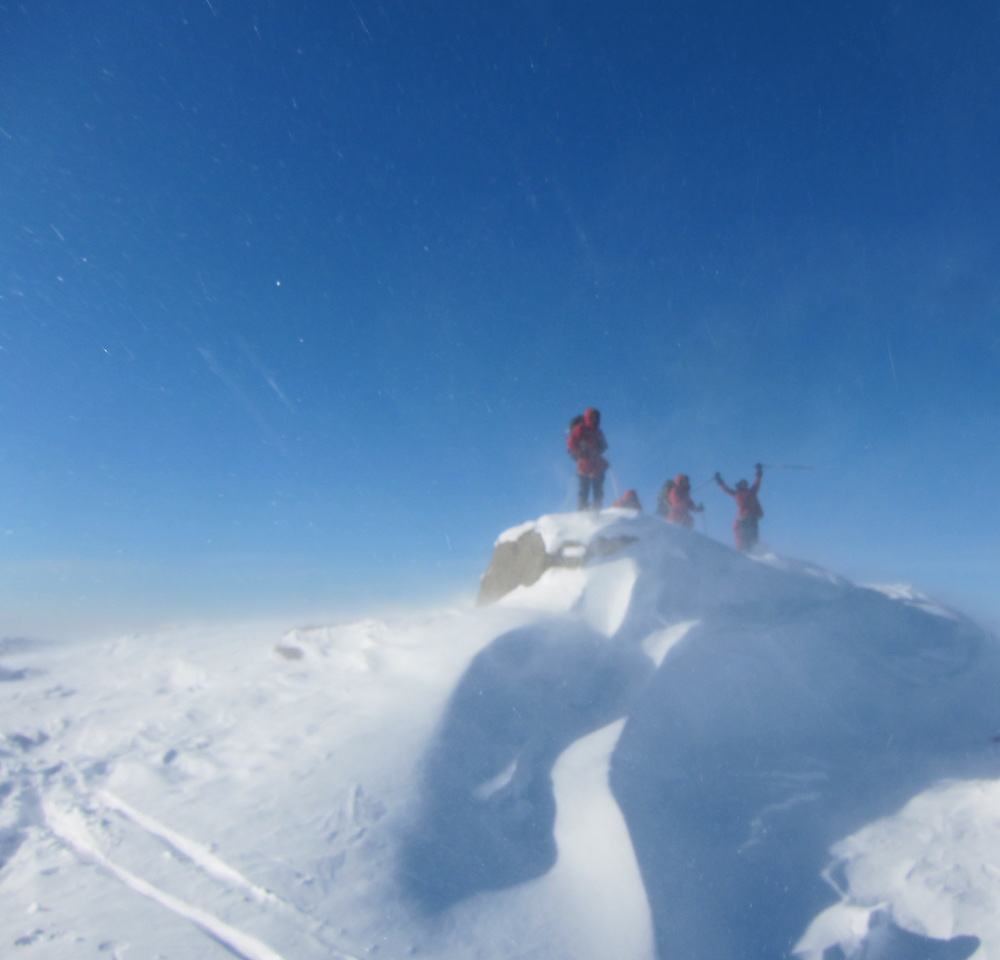
Epic summit shot
Heading North was the seven-day period from Lac Magique, where we had left our sleds, to Guy’s cabin, north of Mont Jauffrey. We had small group overnight solos, breaking into the Trolls and the Gnomes. The Trolls carried our usual camp setup, while the Gnomes used a smaller circus tent and shoebox stove. The instructors, also known as the Elves, built a wonderful snow cave. We summited Mont Veyrier and Mont Beef-Beef, the latter being named after one of our expedition members. We also built our own snow caves and did navigation solos, ending with a seven-kilometer descent from our final camp out of the mountains.
– Aeron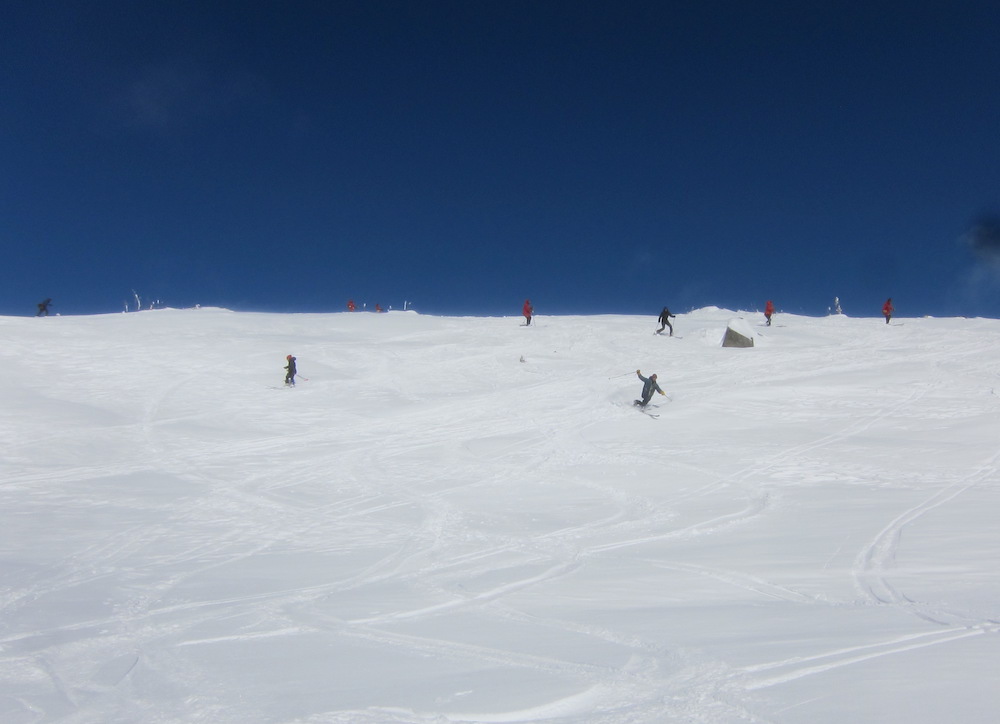
Our time in Uapishka has left us with several more important words and phrases which we’d like to define for you:
Pop Off: To have strong emotions which cause the loss of all self-control. This can be done in a good way or in a bad way. Most often, this phrase is used to respond to good or bad fortune. When atop Mont Beef-Beef, in awe of the unimaginable majesty of the land, one might say “I’m popping off in a really good way right now.” When someone’s saver tendencies start to make one’s blood boil, one should say, “I’m about to pop off in an extremely bad way.”
Four Powder Potion: A drinkable mixture composed of milk powder, coco powder, sugar powder, and water powder (snow). When milk powder runs out, we have three powder potion; if we decide to add a pinch of salt, we have five powder potion.
Rababu: Any meal cooked in water containing a grain and a legume. For example: rice and lentils, couscous and pintos, curried rice with peas, black beans and rolled oats. About 75% of our trail meals are rababu.
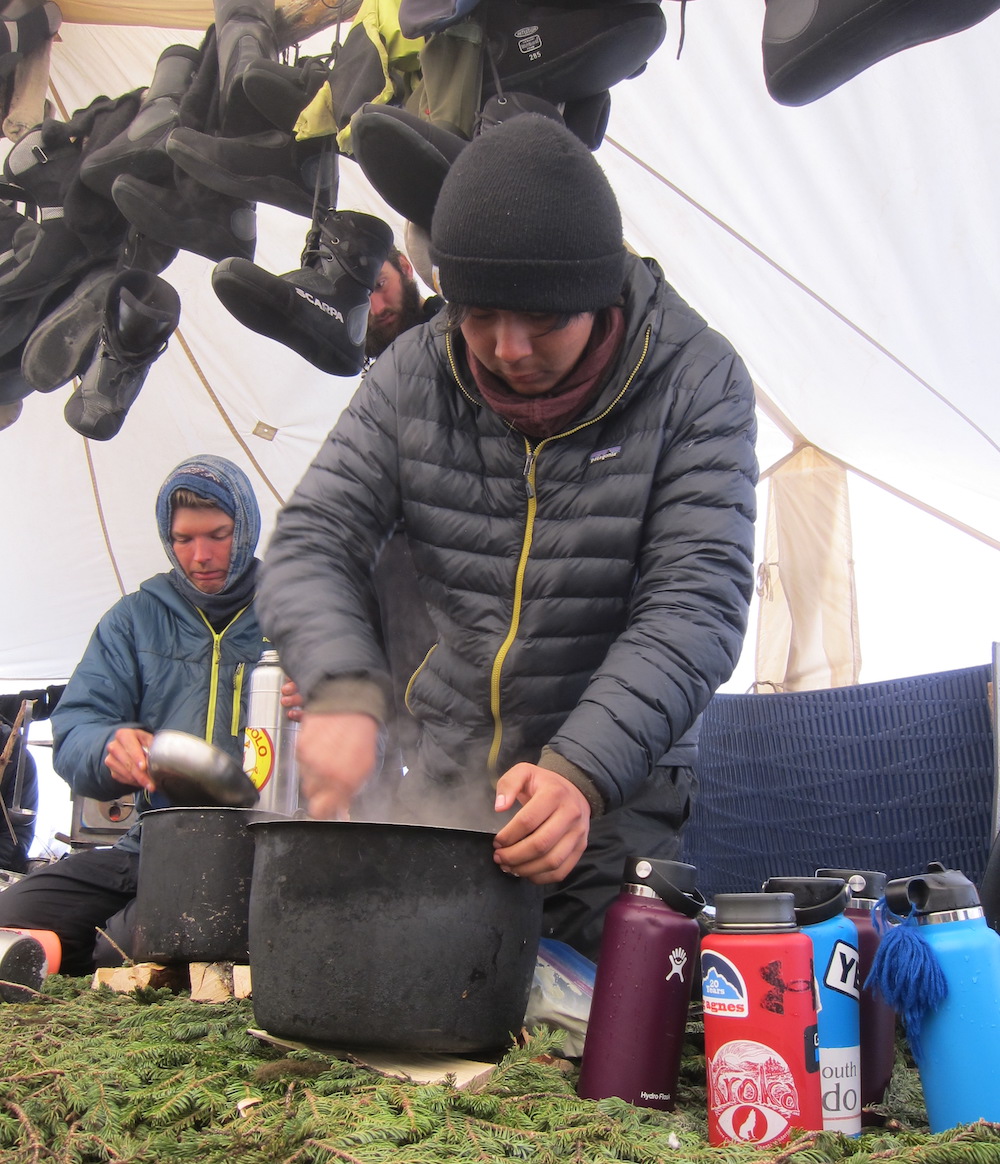
Diego and Satya cooking what is most likely, given the above statistic, rababu
Inner Bastard: The personification of the negative qualities within us. Our Inner Bastard is what makes us take forever to get out of our sleeping bag or fall silent when the group is looking for someone to volunteer for a task. We must destroy our Inner Bastards.
Pocket Rocks: Rocks small enough to fit in one’s pockets. In Uapishka we see a lot of cliffs and boulders, but smaller rocks are buried under feet of snow. Occasionally, on some bare summits, pocket rocks are found and collected.
Shoulder Boulders: Pocket rocks but larger. Those who commit to carrying shoulder boulders all the way out of the mountains waste great amounts of energy and confuse the rest of the group.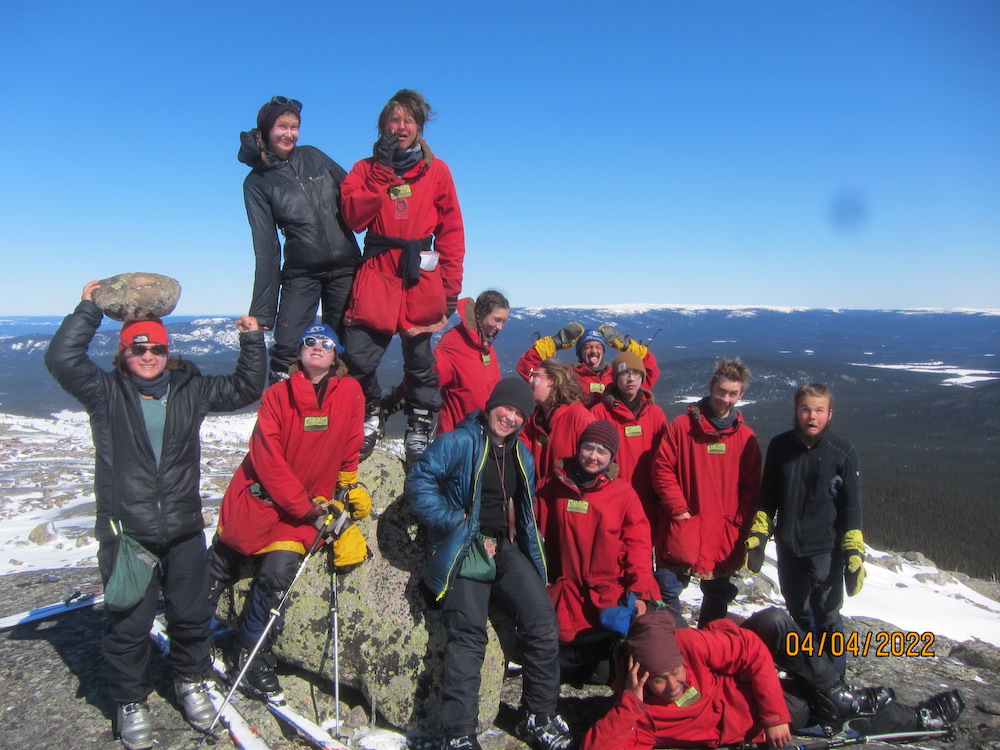
Frozone: A weather system common in Uapishka characterized by high humidity, low pressure, partial sun, and occasional snow flurries. This weather system is warm but feels very cold.
Recreational Cayenne: Cayenne used for flavor and spice purposes; not to be confused with medical cayenne which is strictly to be used in order to improve circulation in chronically cold group members.
Shackleton’s Men!: An exclamation used when someone proposes something extremely painful or deadly which can be compared to the hardship experienced by the members of Sir Ernest Shackleton’s Imperial Trans-Antarctic Expedition.
– Teresa
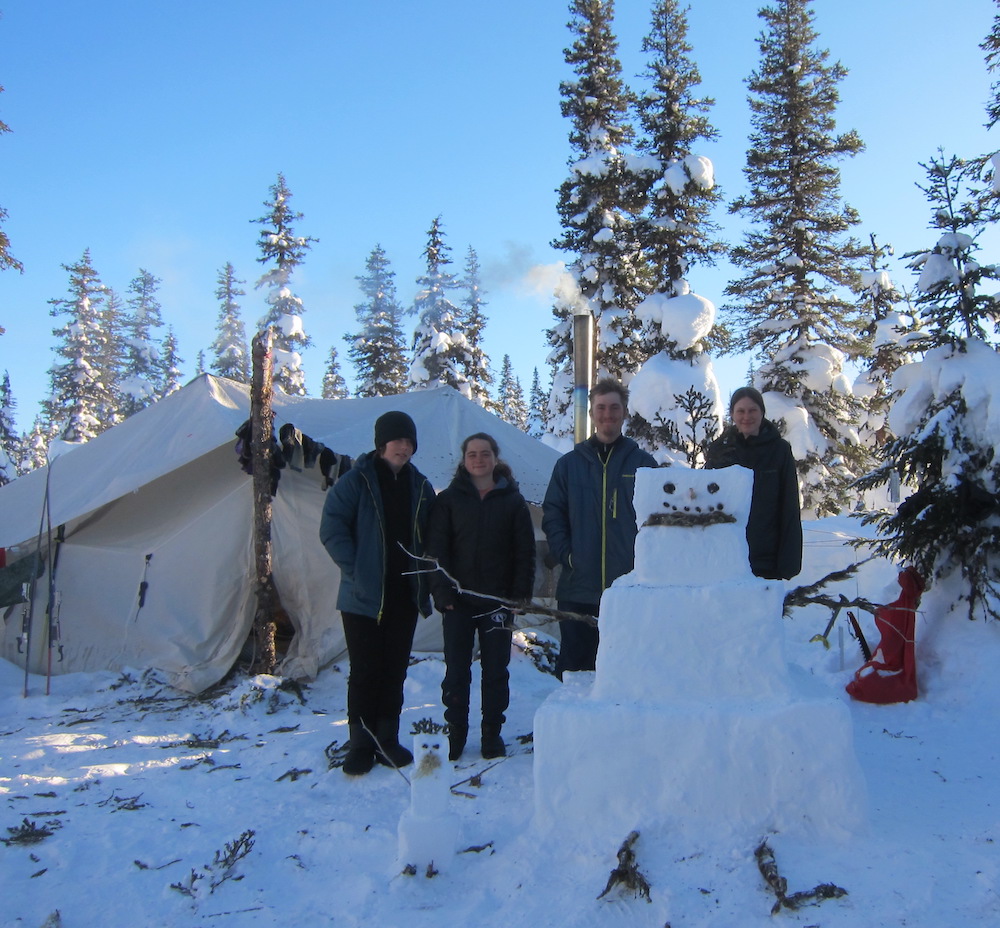
Food, food, food… much of our mental space was occupied by food during our time in Uapishka, which is a notorious habit on long expeditions. Constant slow hunger and the “feeling” of scarcity during each delicious meal on trail gnawed into our minds until food became the dominant topic of conversation. Reminiscences of our favorite foods from back home which we didn’t have (enchiladas, fish tacos, fresh fruits and vegetables, pizza) alternated with debates about the food we were eating. Strong opinions formed about the merits of orange cheese powder, the best and worst flavors of Clif bars, the relative value of pecans, peanuts and cashews, and sweet breakfasts as opposed to savory ones.
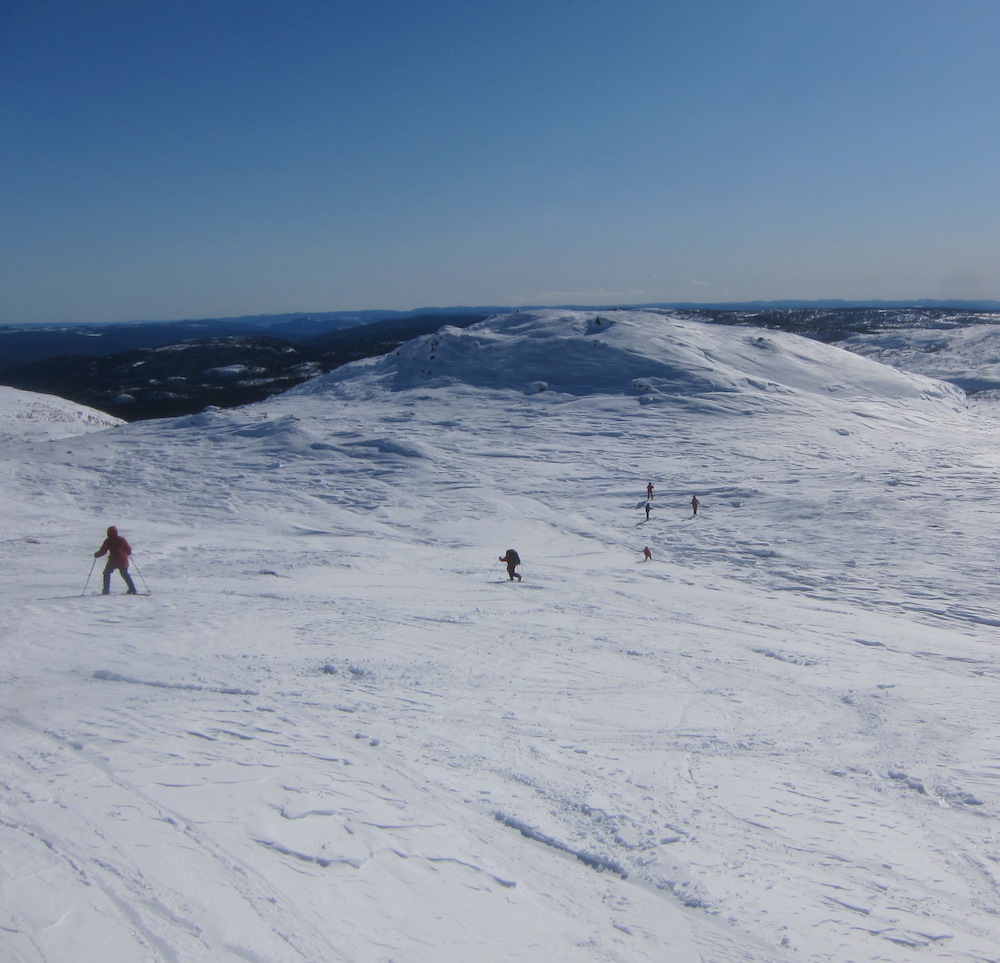
After a time, we grew afraid of the topic of food arising in conversation. Too many strong emotions were involved, and discussing food made it even harder to ignore our hunger. But even then, many conversations revolved around avoiding the topic of food. The purpose of talking was to distract from hunger. Of course, not everyone experienced this degree of hunger, and all of us found that each bite tasted incredible. The enjoyment derived from each bite was directly proportional to the amount of cheese and butter powders in the meal, and there were copious amounts of these things. Being the only regular source of calories between breakfast and dinner, our dayfood had vital importance. Everyone was given a bag of food at the beginning of every travel day consisting of one or two bars, chocolate covered pretzels, dried fruit, jerky, and nuts or seeds. On special days, we each got a quarter stick of butter, a piece of cheese, or a handful of chocolate chips.
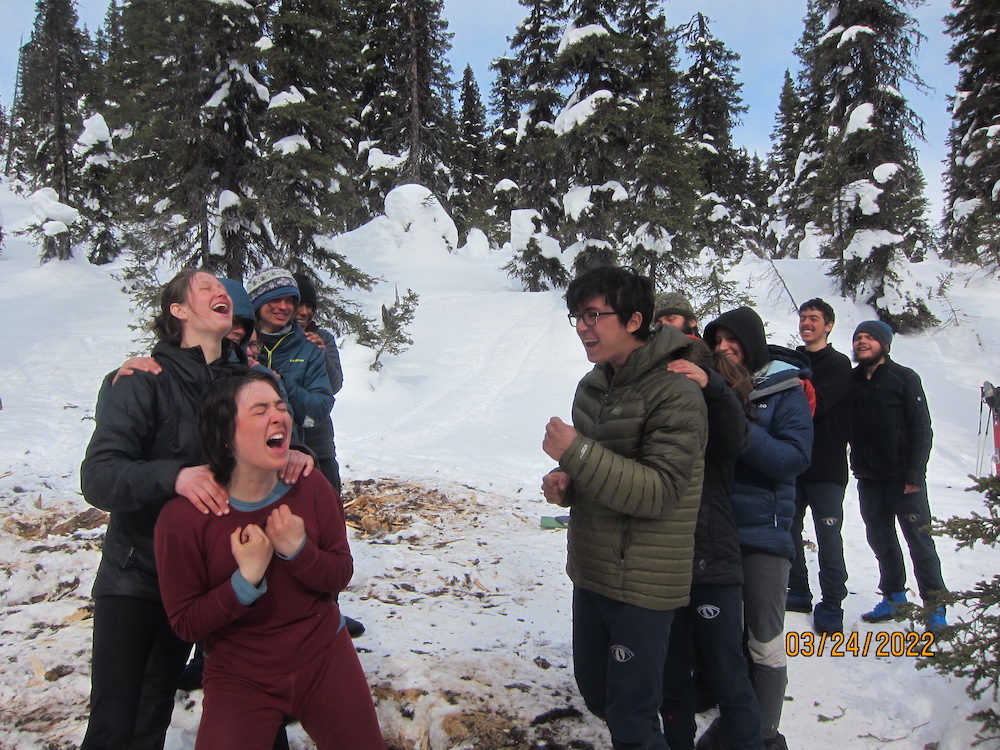
Teresa losing well to Lucas
Everyone spent a good amount of time on trail theorizing about the best way to eat their dayfood. Three major schools of thought arose: the stretchers, the lunchers, and the savers. The stretchers began as the largest group, as stretching was the strategy promoted by Misha on the Green Mountains leg. Stretchers carefully made their dayfood last for the entire day. Each stretcher has their own ideas about what order food should be eaten in, but generally the sweetest and biggest treats were saved for last. When stretching is executed properly, one feels mostly nourished for the entire time that the group is moving. However, nobody figured out how to avoid the temptation of eating too much at once, and only the most disciplined stretchers had food left by the time we made camp.
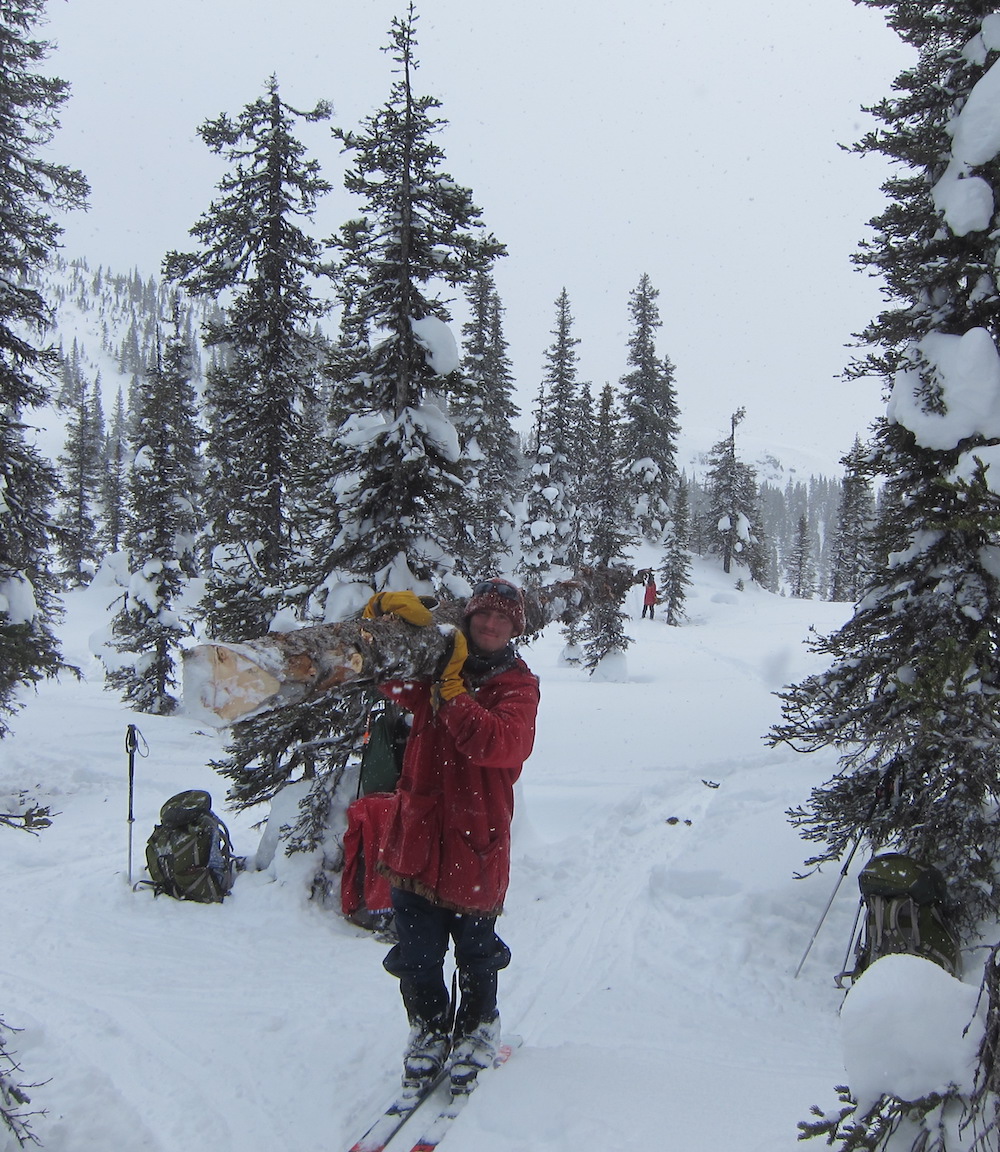
Noah bringing home the firewood
The stress of fighting temptation while stretching led to the formation of the lunchers. Lunchers would eat all their dayfood at once with the goal of achieving the satisfying feeling of a full meal. Once a luncher had finished their dayfood, they would quickly become hungry again, but they didn’t have to struggle with self-control; more food would come at dinner. Generally, lunchers would try to wait until at least the halfway point in the travel day to eat their meal. Usually, though, one luncher would see a stretcher eating before that and start a chain reaction of lunching.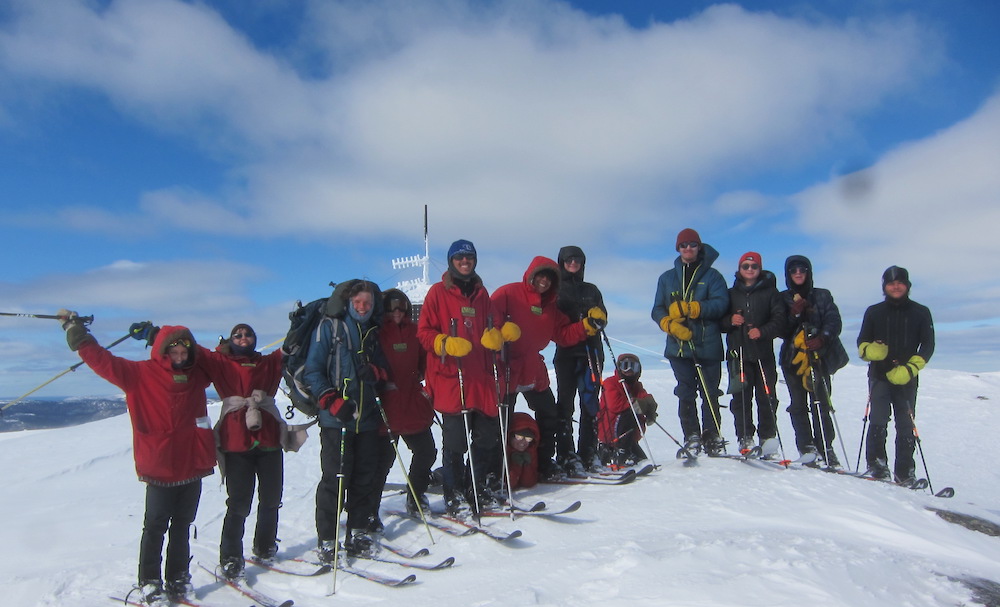
At the end of the day, everyone was jealous of the savers. Savers might eat a bite or two throughout the day, but they somehow had enough self-control to have most of their dayfood still uneaten when we all settled in the tent. We then hungrily looked on, gazing at their piles of chocolate and dried fruit. This resulted in a stigma against “saver tendencies,” which are basically any instances of someone not immediately consuming every scrap of food handed to them. Savers didn’t save in order to flaunt their food, of course – usually, they were looking for the security which comes from having some food tucked away, or they simply weren’t hungry. Sometimes, savers would happily give away their extra food at the end of the day, while other times they would stow it away to trade the next day for more desirable treats.
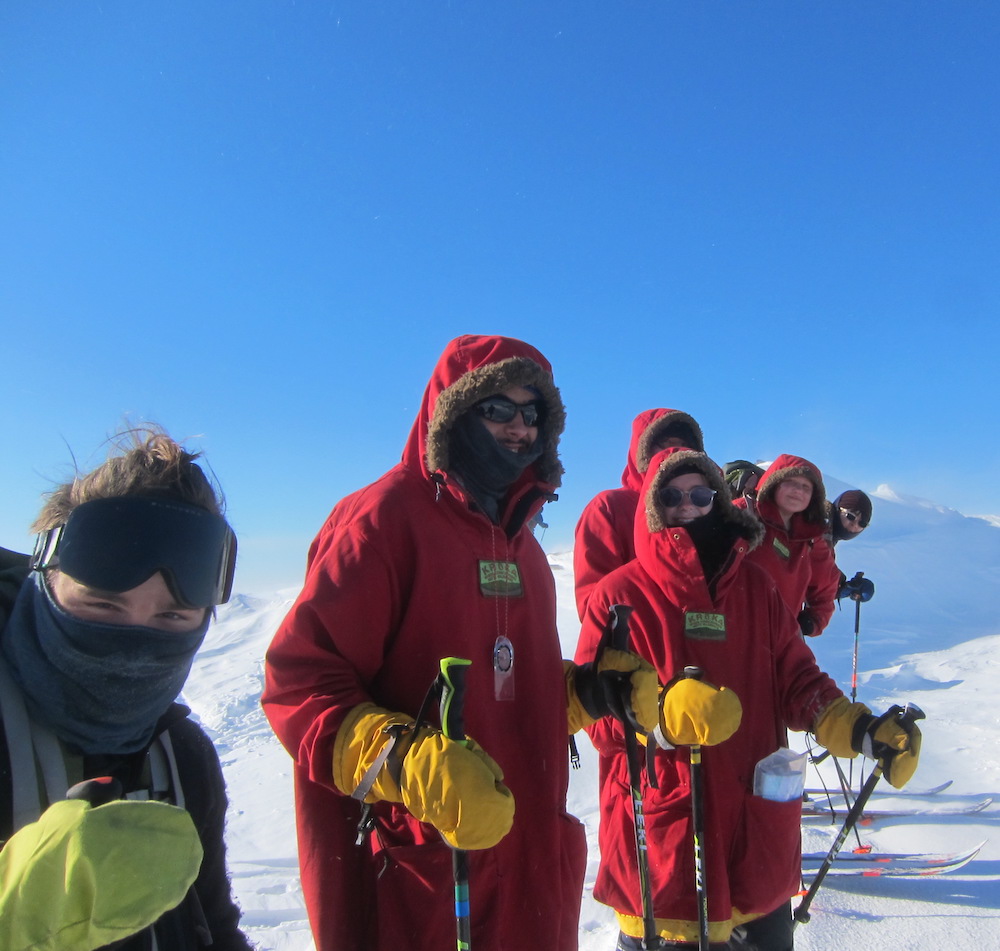
Alex, EJ, Siannah, Sarah, Fern and Teresa
It was interesting to see who was a Stretcher, Luncher or Saver!
Now that we’re in Quebec City, we have all had access to unlimited spaghetti! We are beginning to move past our hangry feelings of anger and desperation, through gluttony and over-indulgence, and towards a healthier moderation. But oh, the sweet, sweet pain of overeating!
– Lucas and Satch
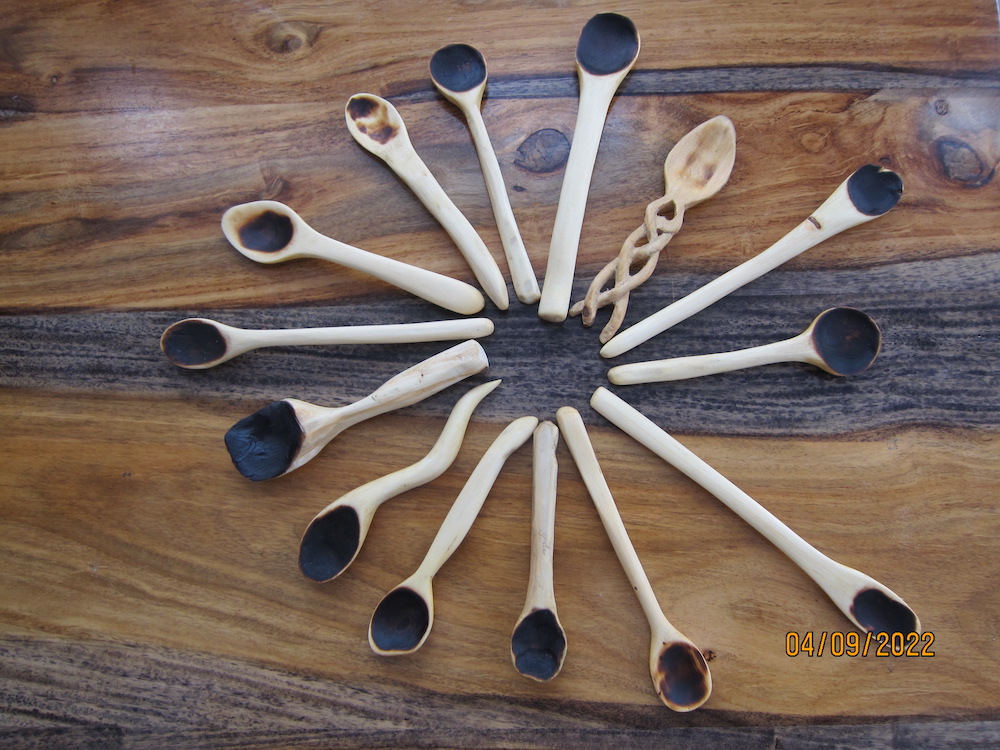
Hand carved spoons
The Whisky Jack goes whoomphing by,
It looks like meat to me
Crunch goes its neck into my jaws
The blood goes dripping down—
These crazy thoughts fill my head
Uapishka has made me mad
– Phoebe
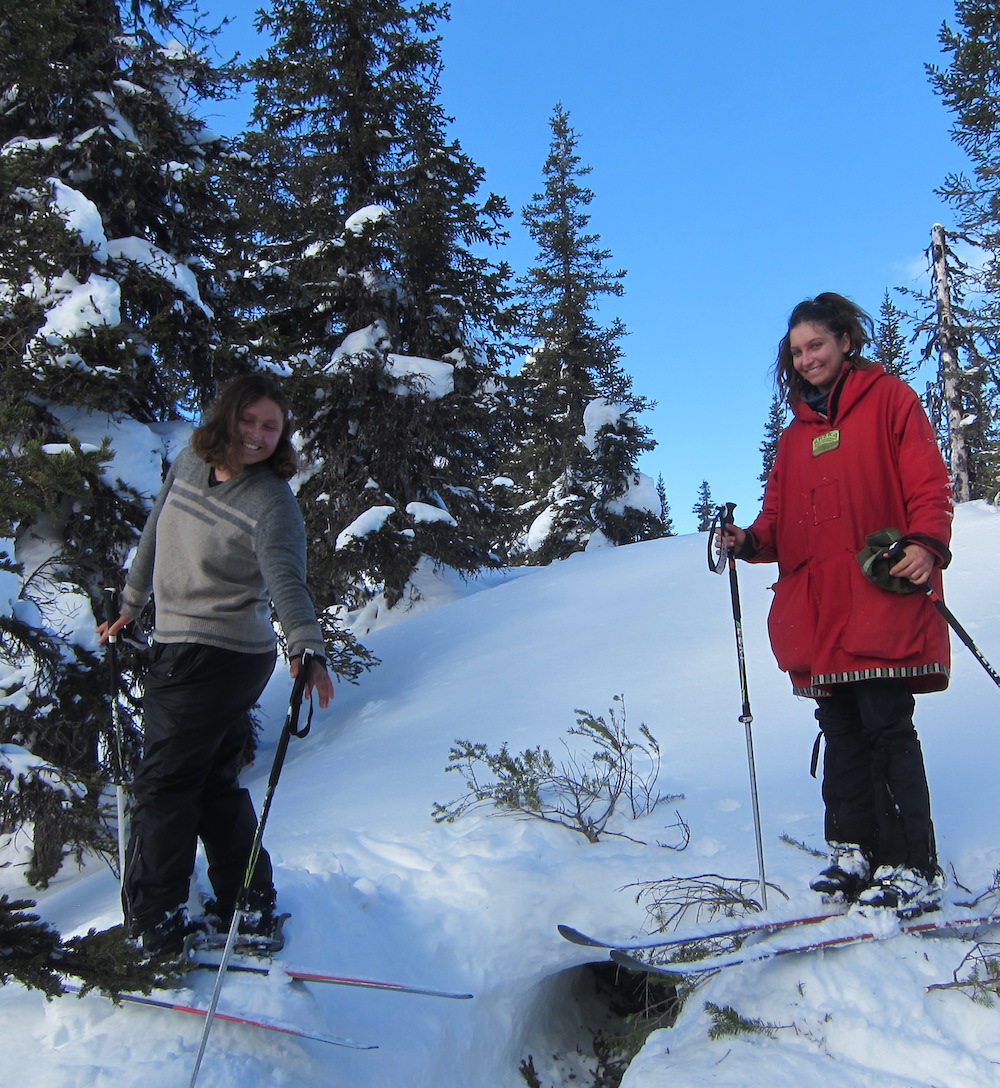
Phoebe and Fern atop their snow cave
I wonder if you’ve ever seen the full moon rise, far out over the horizon? I hadn’t, until after dinner one night just west of Massif Sage. I stepped out of the tent to look at the beautiful starlit night, and I noticed an intense glow far off to the east. I had never seen anything like it except the glow which comes in the same place just before dawn, but it was hard to believe it was the moon, so great was its light. Standing in the cold, I watched and waited for many minutes as the orb slowly moved above the horizon. My heartbeat was pounding and I felt breathless. 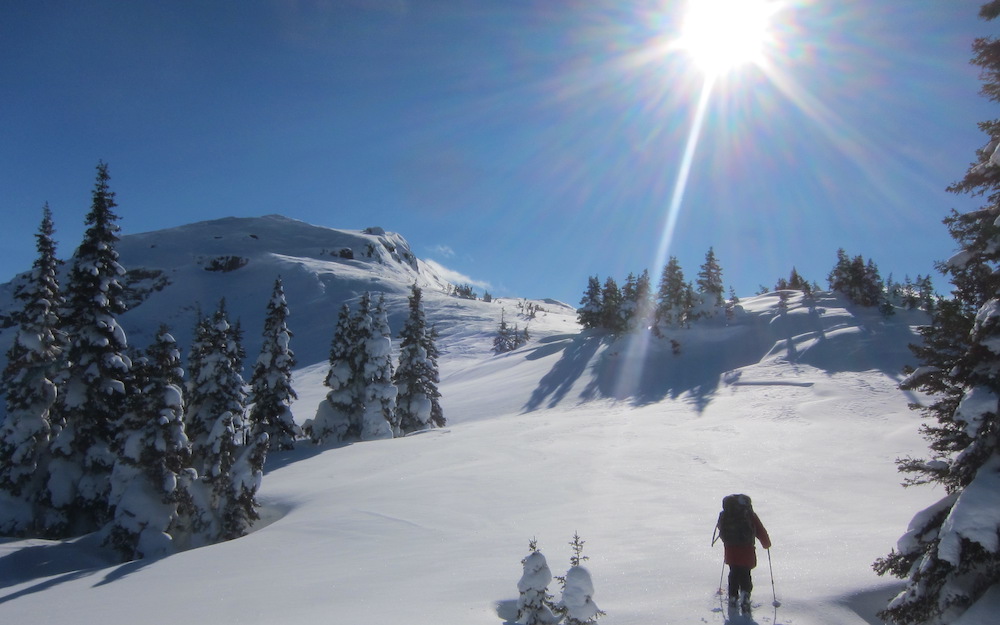
After a month without any contact with the outside world, each of us has one urgent message for you:
Fern: Please aid us to find and recapture Nicholas Paul! (After 3 months with Semester, Nick has departed to warmer climates until reuniting with Semester in June.)
Aeron: Appreciate your clean socks.
Elijah: This is how it’s done.
Teresa: My hair is longer.
Diego: We’re here for a fun time, not a long time.
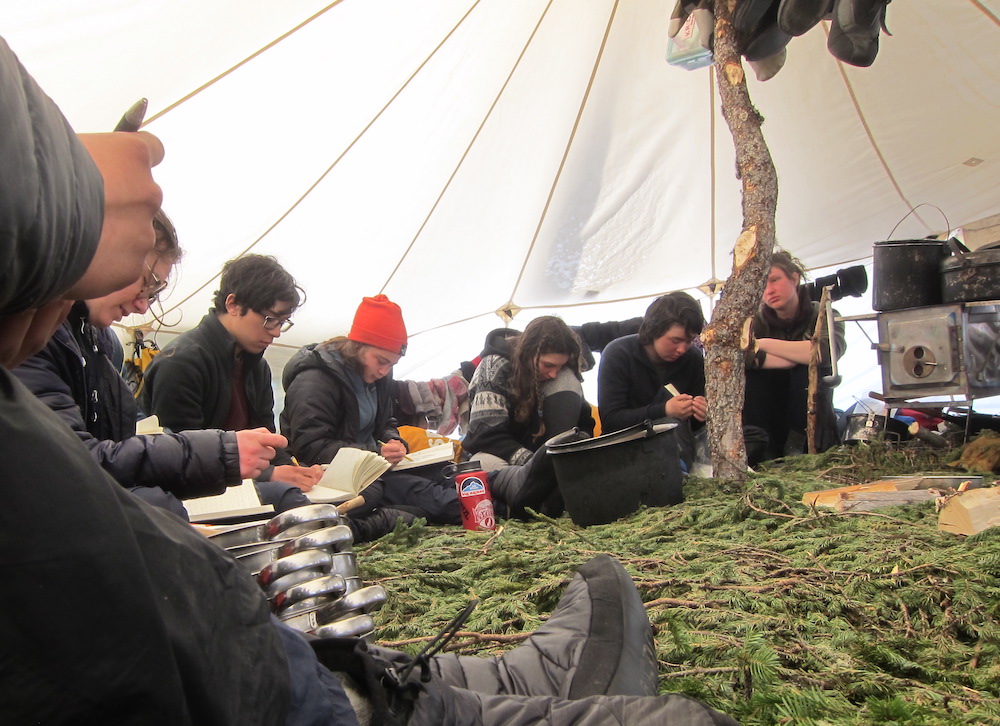
Academics on a Liveover day
Lucas: I gained weight.
Noah: I am skinny for the first time in my life.
Alex: Mayonnaise is not as bad as it used to be.
Sarah: Please send Annie’s white cheddar shells.
Phoebe: I am alive and thriving.
Jenny: Full send or no send!!! P.S. Send chocolate.
Sivannah: My nose is chapped.
Satch: New Englanders don’t know what winter really is.
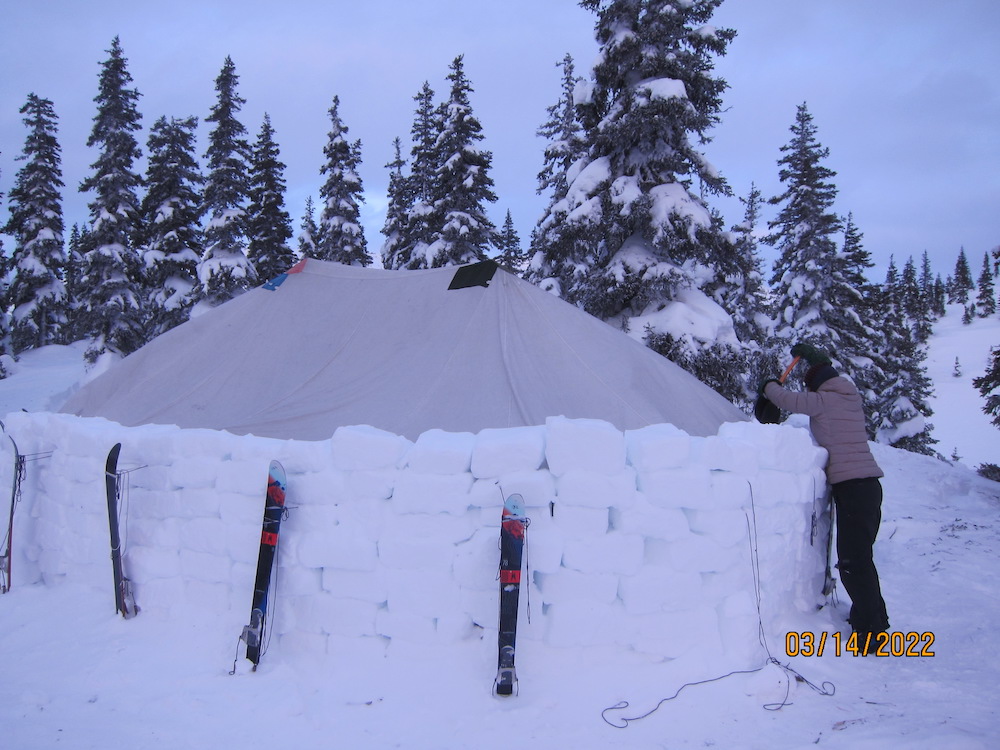
Finishing the snow block wall surrounding the winter tent
As Water Manager, there are two important substances in the Uapishka winter: ice and not-ice. Snow is a form of ice. Slush is a mixture of snow and not-ice. Drinking not-ice is good, and wearing clothes saturated in not-ice is bad, especially when the not-ice becomes ice. Here is a good way to consistently measure water temperature without a thermometer:
Very Cold: Snow which stings bare fingers.
Cold: Snow which is not melting.
Tepid: Wet snow.
Kinda Warm: Partially melted slush; a mixture of ice and not-ice.
Warm: Very minimal ice in comparison to not-ice.
Very Warm: No slush left, totally not-ice.
Hot: Anything warmer than very warm.
– Satya
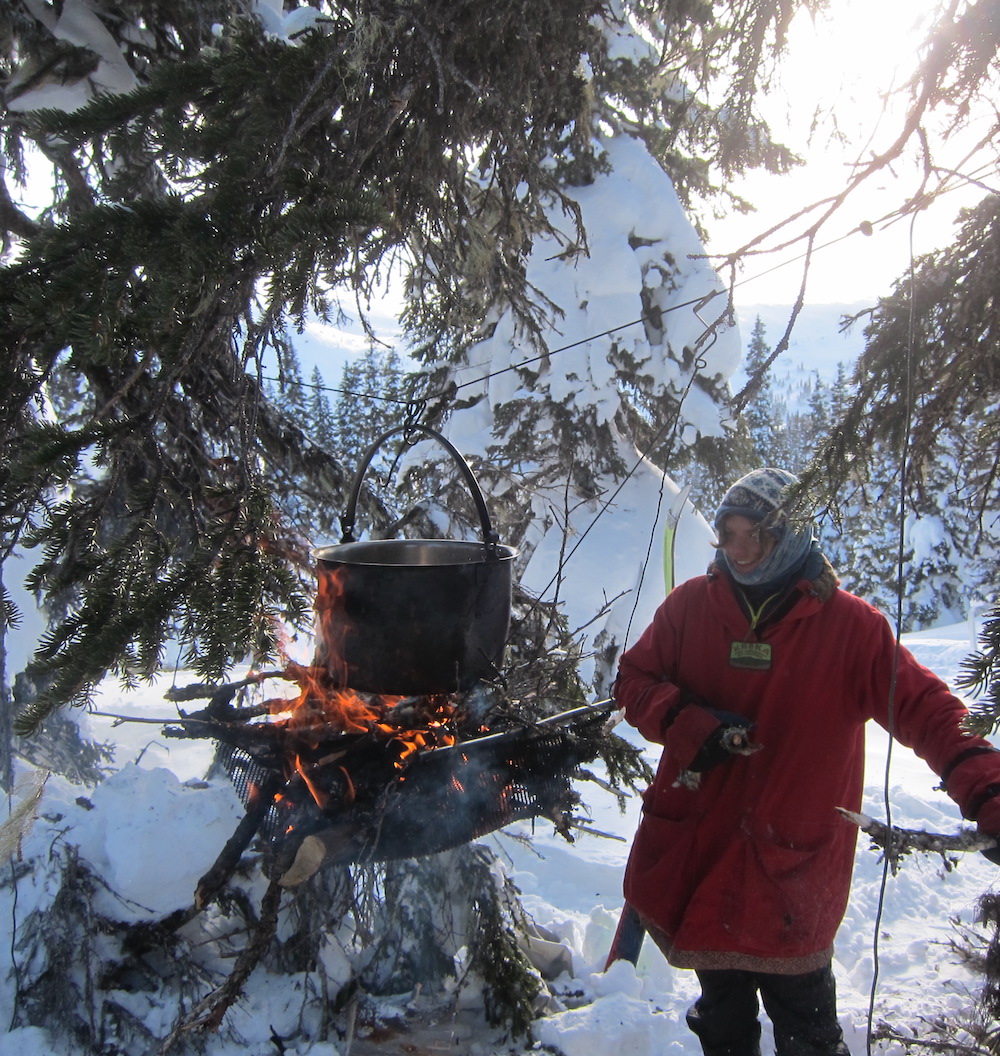
Satya making not-ice
March 30th, 2022
Wednesday, Semester Day 73,
Uapishka Day 20
Lac Magique Liveover Day 2 – skied 5.5 km up Mont Veyrier
Woke up a bit soggy in my snow cave, but it was lovely and cozy silence. The snow cave was blue from the sun, and I could smell the spruce boughs underneath me. I took eons waking up, easing into the light. After getting ready I slid out of my tunnel with everything on my pad and came to the tent. We had peach drink, it was so good, then heard about everyone’s snow cave misadventures. Cheesy kasha led us into a Shackelton study block. I feel proud of my essay.
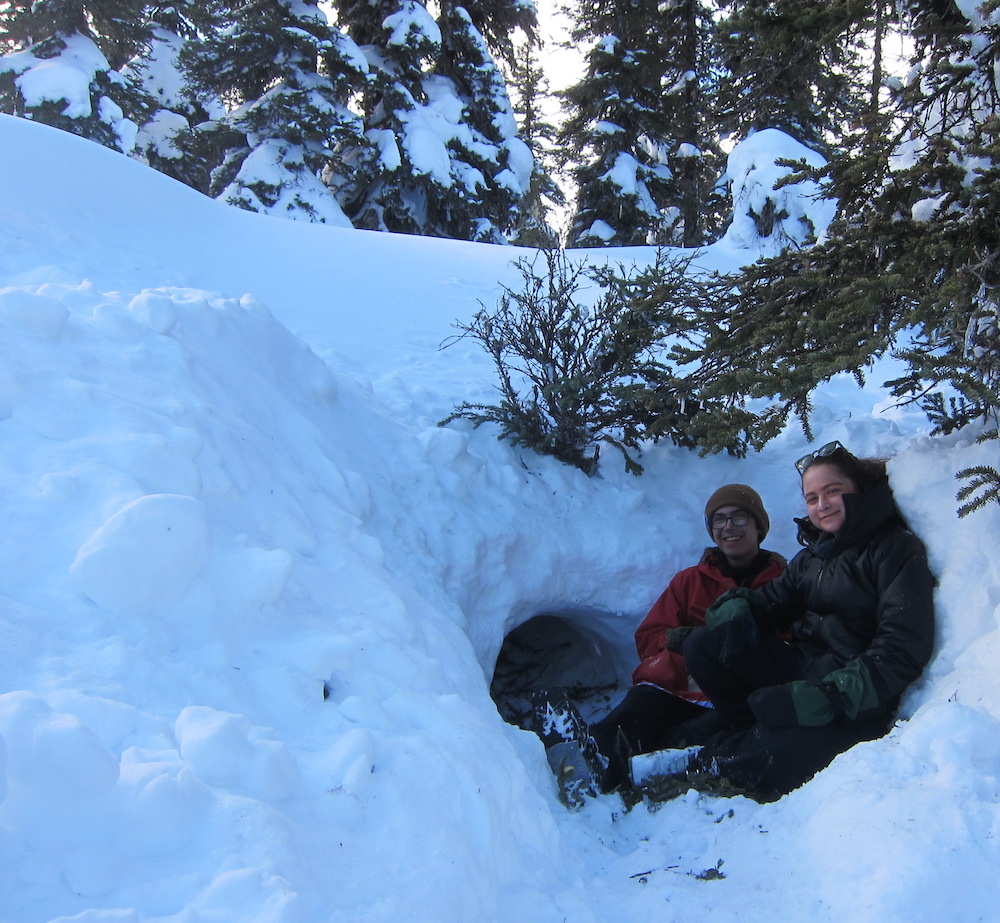
Lucas, Jenny and their snow cave
We talked about tomorrow’s group celebration solo and splitting into two groups for a night. We climbed Mont Veyrier and I felt so happy. I’m with lovely people, taken care of, climbing mountains. View was glorious as always, we keep getting good summit weather. Cold wind, it was nice to balance out the sweaty ascent. I fell tons on descent and hit my knee, but the slopes were epic. Snow cave tours, camp sprucing up, and green veggie broth. Had macadamia nut Clif bar and Becca bar in dayfood!
– Sivannah
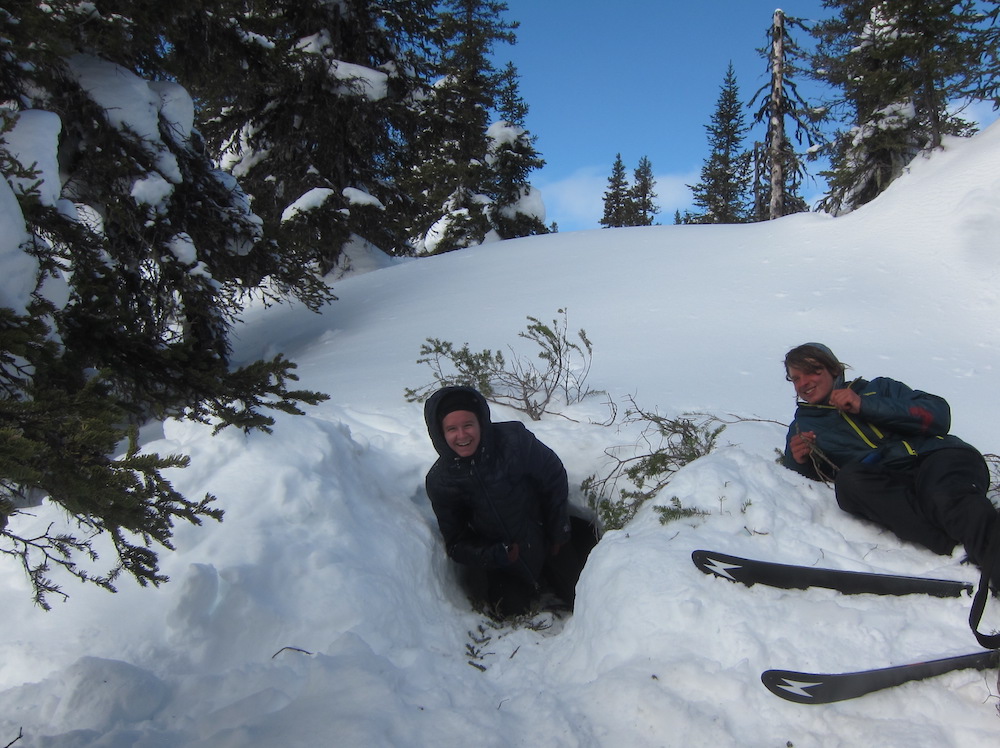
Sivannah and Satya by their snow cave
After two months of living close to the winter environment, we’ve learned something about living in the present. In order to stay warm and dry in the bitter cold we’ve had to practice mindfulness, and so we’ve experienced life more fully.
Awareness is what keeps us safe when there is so little to fall back on, and awareness keeps each and every magical beauty from going unnoticed.
I am grateful to have lived atop yards of snow, traveled through a sleeping, white, wholesome land, spent moments on mountaintops staring across the vast expanse of treeless peaks, skied through ice fogs without depth perception, and lay, laughing, under a glorious ceiling of stars. Our winter life has gifted us the ability to experience life thoroughly, and I will carry this with me forever.
– Sarah
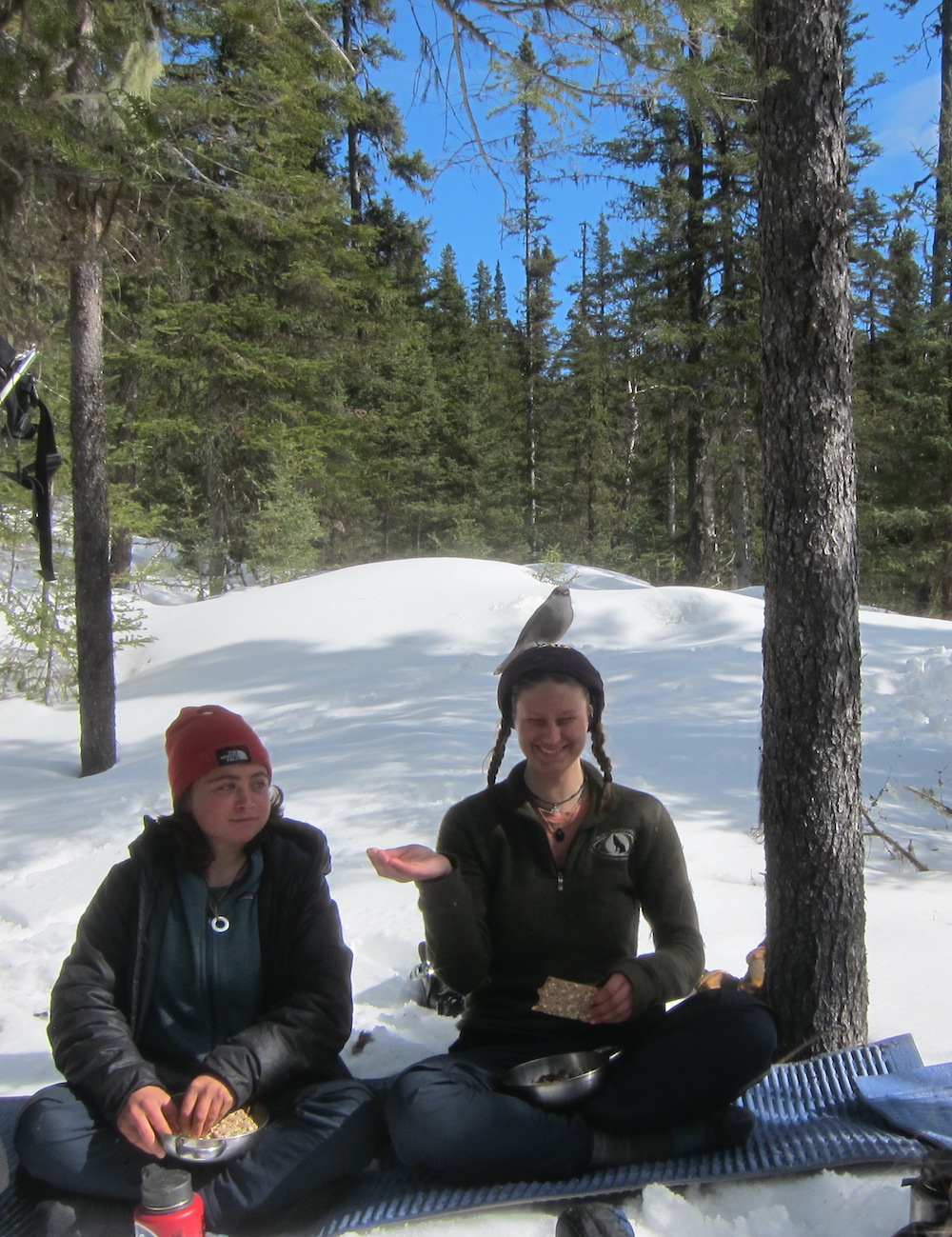
Jenny, Sarah and Jack
The winter is over, the warmth of spring is coming, and in no time at all we’ll be in canoes, paddling south on Lake Champlain. Though it pains our hearts to leave the highlands, we can barely imagine the wonderful adventures we’ll have on the water.
Until next time!
Your Scribe,
Satya
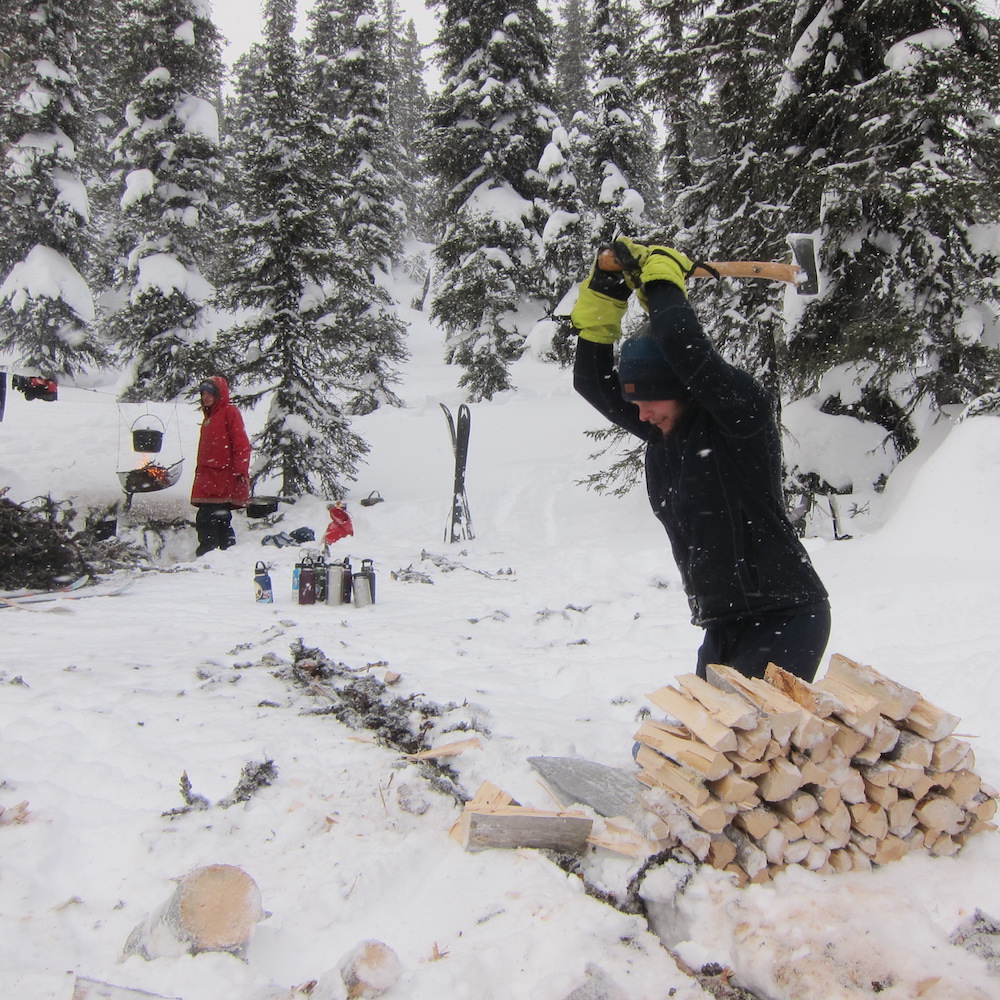
Alex splitting firewood so Satya can make not-ice

